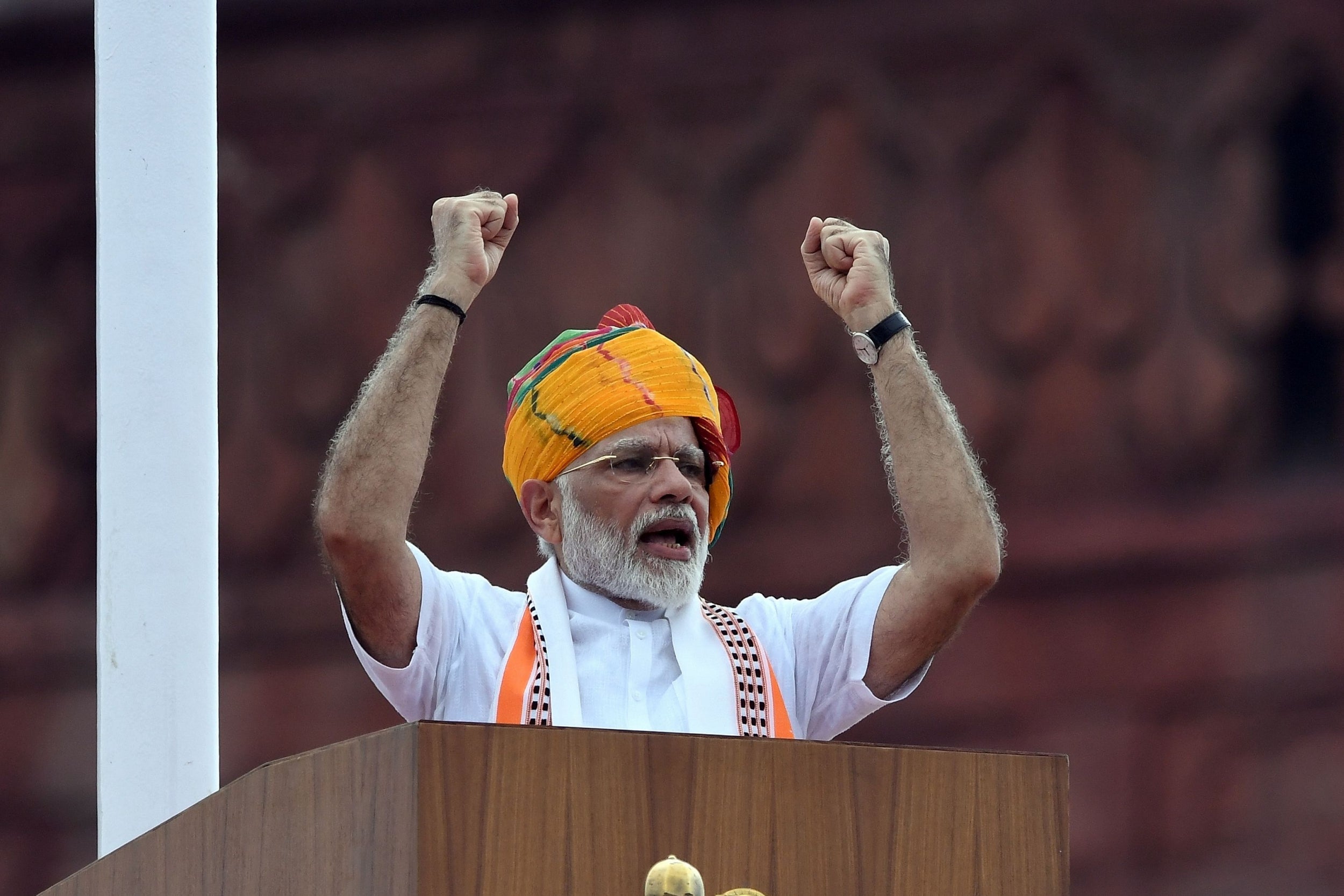Kashmir is seething — and somebody needs to step in before it's too late
US officials conduct 'war games' every few years to test the risks of nuclear war. Every hot situation ends up with a pragmatic solution except one: India and Pakistan


Your support helps us to tell the story
From reproductive rights to climate change to Big Tech, The Independent is on the ground when the story is developing. Whether it's investigating the financials of Elon Musk's pro-Trump PAC or producing our latest documentary, 'The A Word', which shines a light on the American women fighting for reproductive rights, we know how important it is to parse out the facts from the messaging.
At such a critical moment in US history, we need reporters on the ground. Your donation allows us to keep sending journalists to speak to both sides of the story.
The Independent is trusted by Americans across the entire political spectrum. And unlike many other quality news outlets, we choose not to lock Americans out of our reporting and analysis with paywalls. We believe quality journalism should be available to everyone, paid for by those who can afford it.
Your support makes all the difference.Amid the world’s focus on a Ukrainian quid pro quo, the Brexit endgame and the unconscionable treatment of the Kurds, a conflict grows beneath the radar with potential consequences that could dwarf these historic issues. Kashmir is seething.
Since August, 8 million Muslim Kashmiris have been isolated from the rest of the world, with reports of nearly a million Indian troops, thousands of arrests, and widespread torture. The internet has been cut off; mobile telephone service, cut off for months, has only recently and partially been restored.
On October 22, nearly three months into this crisis, Acting Assistant Secretary of State Alice Wells told a House Committee that the Department has raised concerns with the Indian government regarding the detention of local residents and political leaders, including three former Chief Ministers of Jammu and Kashmir. “We have urged Indian authorities to respect human rights and restore full access to services, including internet and mobile networks,” she said. Wells welcomed Pakistani Prime Minister Imran Khan’s statement that terrorists from Pakistan who carry out violence in Kashmir are enemies of both Kashmiris and Pakistan, but continued to hold Pakistan accountable for cross-border operations by Pakistani extremist groups. She stated that a dialogue between India and Pakistan is contingent on Pakistan taking sustained and irreversible steps against militants and terrorists in its territory.
Imran Khan wants international cooperation to solve the vexing problem of Kashmir. India wants to maintain the status quo, squeezing the region through military occupation and trying to enforce an information black-out. Modi refuses to talk to Pakistan until extremis is somehow eliminated. And the United States, famous for its “no pre-conditions” approach, is supporting pre-conditions that it knows India will never agree have been met. This is a disaster for human rights in Kashmir and potentially for the region and the world.
Kashmir has been a flashpoint since the time that India and Pakistan were created in 1947, when the United Nations called for a plebiscite for the Muslim-majority population to determine whether they wanted to join India, Pakistan or become an independent nation. India never permitted the plebiscite to occur and Kashmir remains divided more than 70 years later. India and Pakistan have since fought two wars over Kashmir.
All this might be another one of many stories of frustrated self-determination, but Kashmir is different. For decades, the region has been seen as the most likely flashpoint for a nuclear exchange. India and Pakistan are hostile neighbors, both of whom are armed with nuclear weapons. When Imran Khan speaks of nuclear risk, it is not hyperbole to get the world’s attention.
Senior US military officers and policy-makers have been conducting “war games” for years to figure out how the US can deal with global hotspots and prevent war, especially nuclear war. The officials are divided into various nations. These are responsible, serious officials at the top of the Pentagon and civilian power structures. None of them wants to be seen as having responsibility for a nuclear exchange and virtually every hot situation ends with a pragmatic solution. Except one: India and Pakistan.
More than 20 years ago, Thomas Ricks wrote in the Wall Street Journal that “a mock war in the Asian subcontinent is one of the most common games played by senior US military officers and other government officials. The usual scenario for a new India-Pakistan clash begins with the two nations at a crisis point over Kashmir.” Invariably, the exercise ends in a nuclear exchange. He quotes a retired Air Force official, Sam Gardiner, who has run approximately 25 such exercises: “Usually the escalation to nuclear weapons happens within the first 12 ‘days’ of the war game.”
The Indian government, under Modi, massively upped the stakes between the two nations by abrogating Article 370 of the Indian Constitution in August. This Article gave significant autonomy to Kashmir, including allowing the region its own Constitution.
The elimination of Article 370 protection has been accompanied by a massive military presence and an internet blackout as well as a curfew. Mainstream politicians have been arrested and the media has been shut down. More than 3,000 people have been detained, including children.
The Indian Supreme Court has ordered an investigation of detention of children being illegally detained by security forces. Vital supplies and medication are not getting through. To be sure, the Kashmiri reality has been complex and violent and there have been periodic attacks by extremists over the years. But that is not what has prompted nor can it justify nearly a million soldiers locking down 8 million people under awful conditions.
A geopolitical crisis has become a humanitarian crisis as well. After years of corrupt and ineffectual government, punctuated by coups, Pakistan has a forward-thinking prime minister in Imran Khan committed to the rule of law and peaceful diplomacy. The challenges he faces are immense. And fresh from a huge mandate for his Hindu nationalist party, Modi has chosen to stick his finger in Pakistan’s eye.
The crisis in Kashmir empowers the extremists in both countries — and the countries involved should be talking to each other, with international assistance. To require Pakistan to take unspecified irreversible steps as a pre-condition dialogue is a formula for no dialogue and further violence. The rest of the world must intervene — not to tilt toward India or Pakistan or toward Hindus or Muslims, but to prevent a humanitarian catastrophe which could lead to something far worse.
Join our commenting forum
Join thought-provoking conversations, follow other Independent readers and see their replies
0Comments